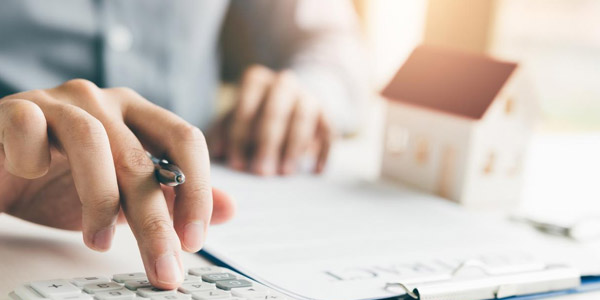Homeowners
How Much Does It Cost to Refinance a Mortgage?
April 3, 2024
Refinancing a mortgage can potentially help homeowners save thousands of dollars a year if mortgage rates fall. However, refinancing a loan typically comes with some upfront costs.
That's why homeowners need to weigh the financial pros and cons of a refinance.
The cost of refinancing a mortgage generally depends on how large of a loan and what kind of loan they hope to refinance.
Most homeowners pay anywhere from 2% to 5% of the new loan balance. This includes those with Conventional and Federal Housing Administration (FHA) loans.
Those with a U.S. Department of Veterans Affairs (VA) loan generally have similar fees as the Conventional loan. However, they typically must pay an Interest Rate Reduction Refinance Loan (IRRRL) fee totaling 0.5% of the loan amount or a cash-out refinance fee totaling 2.15% of the loan total.
Use This Mortgage Refinance Cost Calculator to Get an Estimate
Understanding the costs of refinancing
Many of the same mortgage closing fees that apply when a house is purchased may occur again during the refinancing process.
These can include the non-refundable application fee. Most application fees range from $50 to $500.
There is also the appraisal fee to determine how much a home is worth. It helps to determine the size of the new loan. After collecting the fee, a lender hires a professional appraiser on behalf of the homeowner.
Origination fees cover the administrative costs that go along with preparing mortgage documents. They can total up to 1.5% of a new loan amount.
If a home inspection is ordered, it might cost anywhere from $300 to $600.
While not always mandatory, most lenders require a title search and title insurance with a mortgage refinance. The cost can total anywhere from 0.5% to 1% of a home's purchase price.
Homeowners may also encounter a recording fee. This is typically collected by a homeowner's local government. Recording fees cover the registering or recording of the legal purchase of a property. While pricing can vary by location, most municipalities charge anywhere from $25 to $300 in recording fees.
Sometimes homeowners may also encounter a prepayment penalty when refinancing their loans. Rules on this vary by lender and loan agreement.
However, a borrower with a mortgage with a hard prepayment penalty may incur a fee when they refinance a home within three years of purchasing it because this is considered breaking the terms of the contract. Most prepayment penalties total 1% to 2% of the loan.
Can homeowners get a "no closing cost" refinance?
A "no closing cost" refinance can be an option for some borrowers. However, the term is something of a misnomer because closing costs aren't truly erased.
This arrangement allows homeowners to replace their current mortgage without new fees by either rolling closing costs into the new loan balance or having the lender cover closing costs in exchange for a higher interest rate.
Why do homeowners refinance?
Homeowners refinance their mortgages for a variety of reasons.
Some hope to lower their mortgage rates. If interest rates have dropped significantly, refinancing allows homeowners to update their loans to the current lower rate.
A better rate can lower monthly mortgage payments and interest costs over the life of the loan. Homeowners who have improved their credit since getting approved for a mortgage can also typically benefit from rate reductions.
Other homeowners may want to change the length of their mortgages. They may want to go from a 30-year loan to a 15-year loan. This can help them to pay down their mortgages faster.
Those with adjustable-rate mortgages (ARMs) may want to switch to a fixed-rate mortgage when the mortgage rate on their ARM is about to reset.
In addition, homeowners who need to borrow money may find it's cheaper to use a home equity loan or a home equity line of credit (HELOC) to tap into their home's value.
How do homeowners refinance their mortgages?
- Select a lender: There's no rule that homeowners need to refinance with the same company handling their current mortgage.
- Apply: The next step is submitting an application for refinancing. Minus the purchase agreement, a refinancing application generally includes the same steps as a mortgage application. Applicants are also asked to submit pay stubs, tax documents, and recent bank statements.
- Lock in an interest rate: Some applications may be offered the option to lock in an interest rate while the closing process moves forward. This protects homeowners if rates rise during the mortgage process.
- Underwriting: This step involves homeowners working with a lender to provide all the necessary documentation about their financial situation as well as the home itself.
- Complete an appraisal: A lender appraisal usually involves a visit to the home from a licensed home appraiser who verifies that the home is worth the value stated on the loan.
- Review documents: Homeowners who are in the process of refinancing should take time to read through the Closing Disclosure that the lender provides them before closing.
- Close: The final step is to sign all loan documents.







 Smart Moves Start Here.
Smart Moves Start Here.